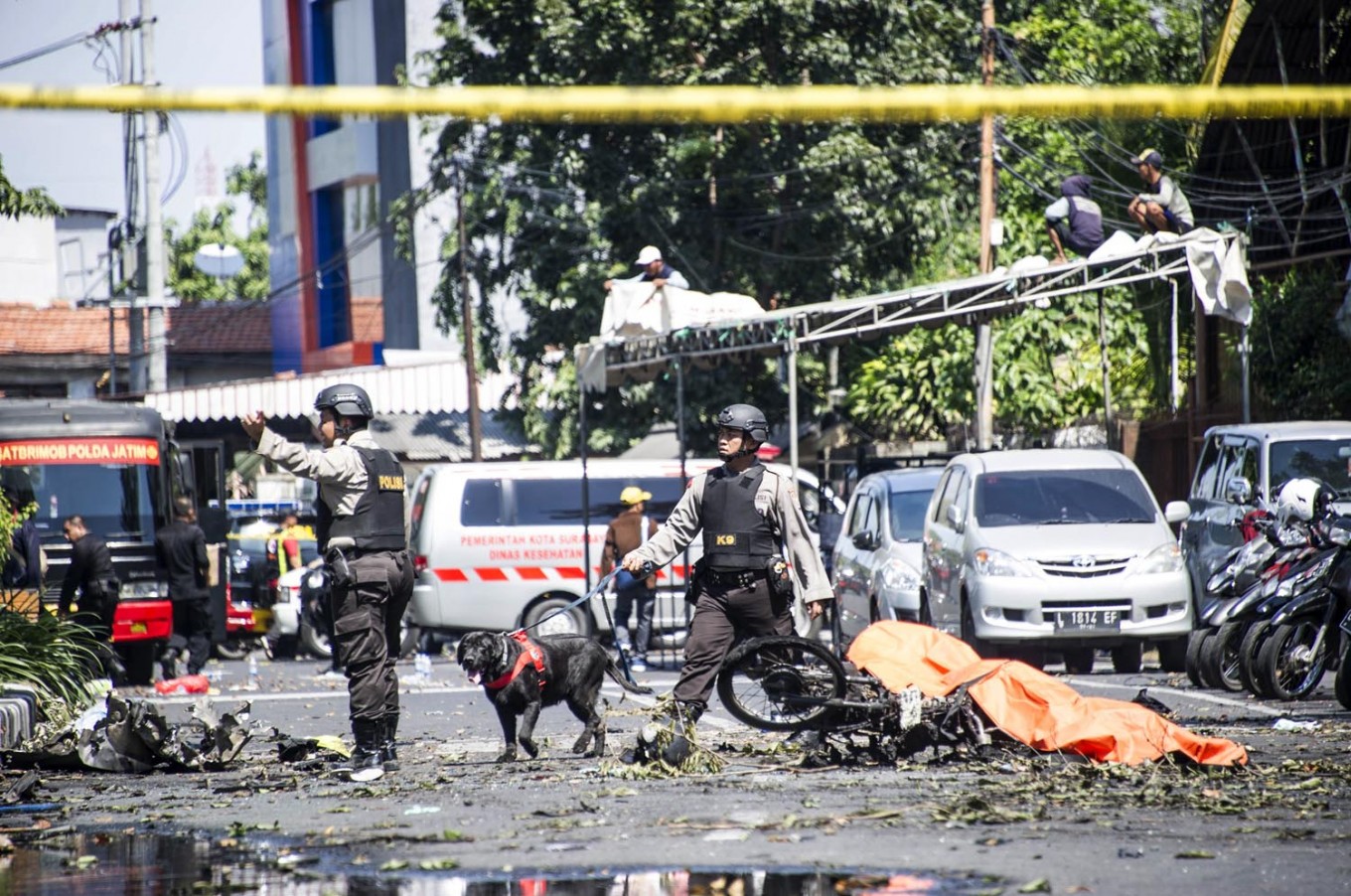Popular Reads
Top Results
Can't find what you're looking for?
View all search resultsPopular Reads
Top Results
Can't find what you're looking for?
View all search resultsSurabaya church bombers believed world ending in 2018: Report
The imminent end of the world, a report says, was a frequent theme of Dita Oeprianto’s lectures after he took charge as the emir of Jamaah Anshar Daulah (JAD) Surabaya in mid 2017 — a year before a series of bombings in Surabaya and Sidoarjo, East Java, in May.
Change text size
Gift Premium Articles
to Anyone
 A K9 police unit examines the site of a bomb attack outside a church in Surabaya, East Java, on May 13, the day that numerous bombers attacked churches in the city in the deadliest series of attacks for years in the world's biggest Muslim-majority country. (AFP/Juni Kriswanto)
A K9 police unit examines the site of a bomb attack outside a church in Surabaya, East Java, on May 13, the day that numerous bombers attacked churches in the city in the deadliest series of attacks for years in the world's biggest Muslim-majority country. (AFP/Juni Kriswanto)
D
ita Oepriarto, the suspected mastermind behind the Surabaya church bombings in May, believed the world would end in 2018 and was driven by his apocalyptic belief to carry out the deadly attack, according to a report released by the Institute for Policy Analysis of Conflict (IPAC).
The imminent end of the world, the report says, was a frequent theme of Dita’s lectures after taking charge as the emir (leader) of Jamaah Anshar Daulah (JAD) Surabaya in mid 2017 — a year before a series of bombings in Surabaya and Sidoarjo, East Java, in May this year.
The bombings killed 25 people, including the perpetrators and their family members.
Dita was said to have believed in a hadith (a saying from Prophet Mohammad) regarding the end of days, when the stars would fall and a meteor would hit the earth, followed by a black cloud that would last for at least 40 days.
The apocalyptic event, according to the hadith, would kill everyone but those who live in the greater Syria area, where an Islamic leader called Imam Mahdi would appear after the cloud disappeared.
Other suspected Surabaya bombers, Anton Ferdianto and Tri Murtiono, are thought to have shared this belief.
The three later used their own families, including children, to carry out the attacks. They believed that, since getting to Syria was almost impossible then, the best guarantee to get to heaven was to carry out jihad in their home country.
The decision to use children in the attacks was later condemned by JAD ideologue Aman Abdurrahman, who called it “a cruel act under the pretext of jihad.”
The report, released on Thursday, elaborates on the preparation of the JAD network in East Java from 2015 and future scenarios of terrorist activity in Indonesia.
The IPAC notes that Dita, Anton and Tri had started building homemade bombs in October 2017. In five months, the three produced almost 100 pipe bombs and some 64 so-called “mug bombs”.
However, the relative success of the families in their terrorist activity was attributed to their “unusual ability to keep secrets rather than their technical know-how”.
The families deliberately interacted more with their neighbors to present an image of “normal, pious Muslims”. This, the report says, was one of the reasons why police stopped their surveillance of the families three months before the attacks.









